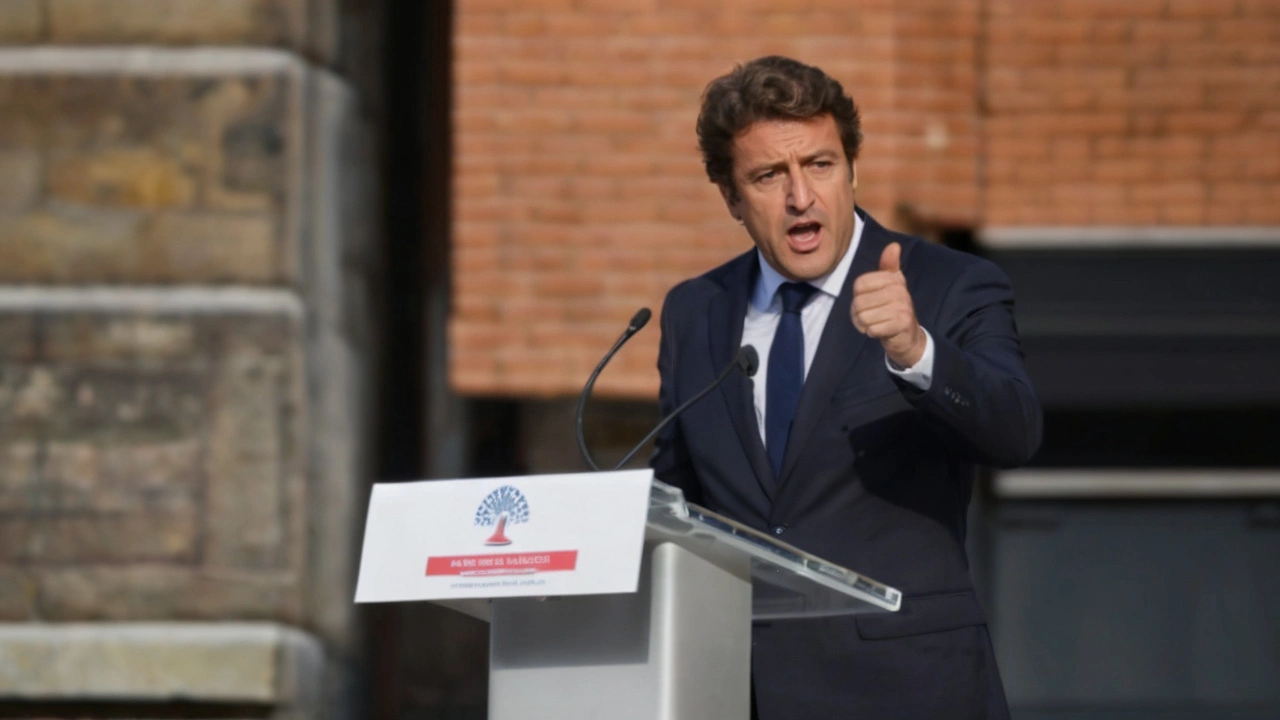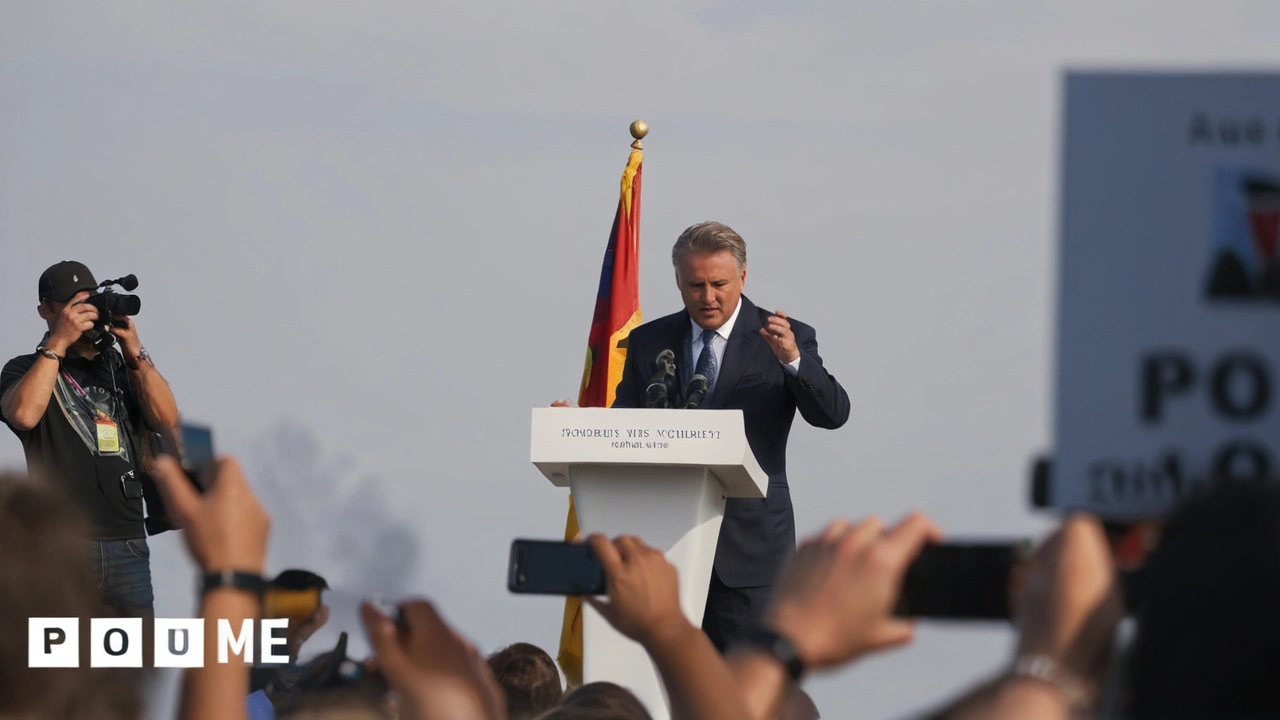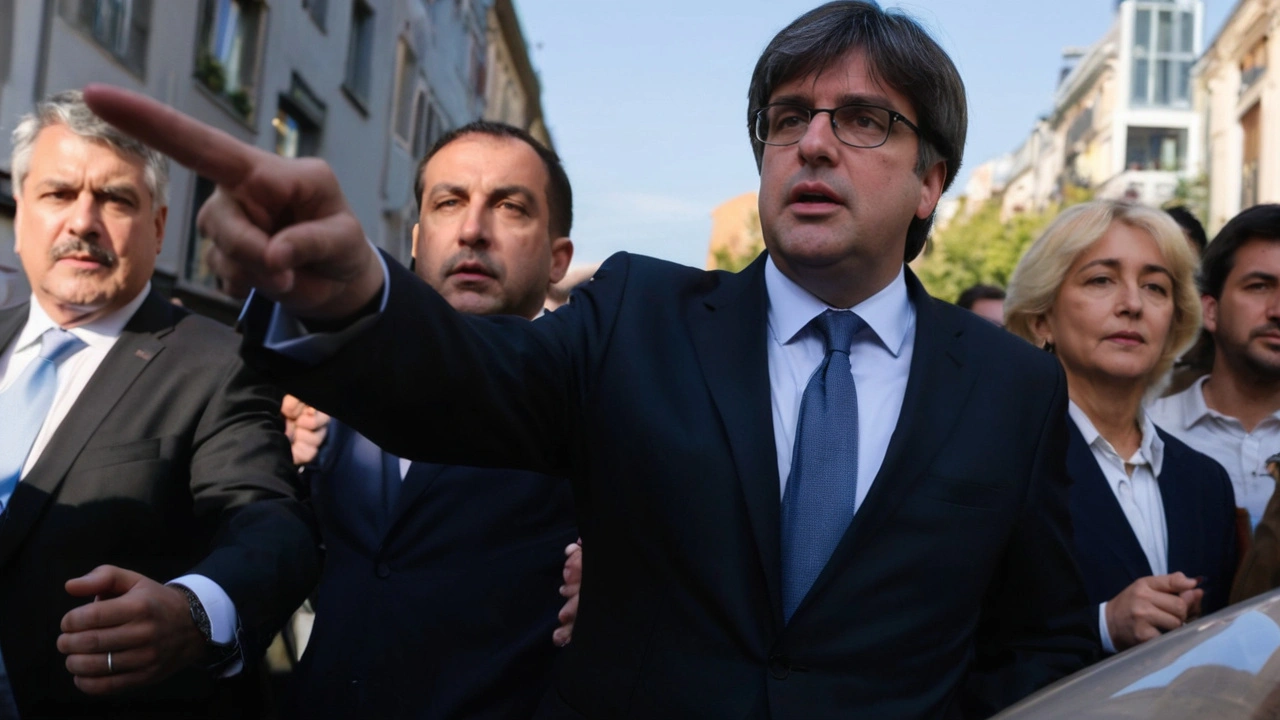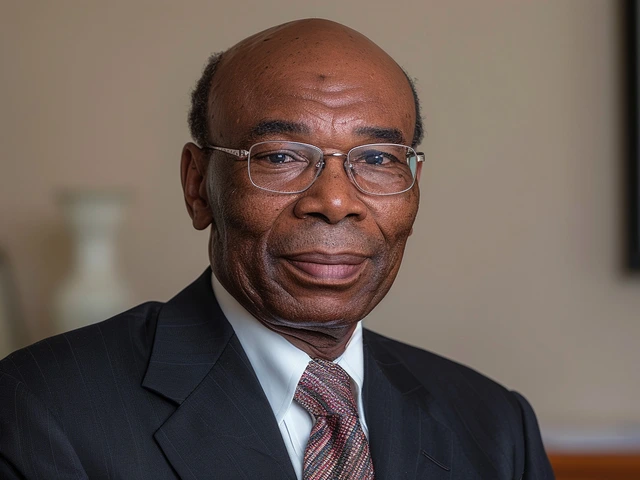Carles Puigdemont: A Leader in Exile
Carles Puigdemont, who once led Catalonia, has once again managed to elude Spanish authorities. Following a brief and arguably daring visit to Barcelona, Puigdemont has returned to Belgium where he has been living in exile since 2017. This feat of evasion marks the second time he has successfully avoided arrest in Spain, leaving many to question how he managed to evade capture not just once, but twice.
Puigdemont's lawyer confirmed that the former leader is safe and free in Belgium. This has not only reassured his supporters but also added another chapter to his already tumultuous political journey. The Spanish police, on the other hand, are left grappling with the logistics of his escape. They are under scrutiny to explain the security lapse that allowed such a high-profile figure to slip through their grasp once again.
The Catalan Independence Movement
Puigdemont's story cannot be fully understood without context. Catalonia, an autonomous community in northeastern Spain, has a long history of seeking independence. Tensions peaked in October 2017 when Puigdemont's administration held an independence referendum, a move deemed illegal by the Spanish government. The controversial vote led to a unilateral declaration of independence, followed by a swift and severe response from Madrid, which included the imposition of direct rule over Catalonia.
The fallout from these events forced Puigdemont and several associates to flee Spain, facing charges of rebellion, sedition, and misuse of public funds related to the referendum. Since then, Puigdemont has resided in Belgium, a country that adheres to complex laws regarding international extradition and protection of political figures. Despite living in exile, Puigdemont remains an influential figure within the Catalan independence movement. His party, Junts per Catalunya, continues to push for secession from Spain and retains significant influence in Catalan politics.

Impact in Spain and Belgium
Puigdemont's return to Belgium is not merely a personal triumph but a symbol of the ongoing political strife between Catalonia and the Spanish government. Political analysts point out that this development has ramifications beyond Spanish borders, directly influencing Europe and the EU's approach to separatist movements. Belgium now finds itself in a precarious position. The Belgian government must navigate diplomatic repercussions with Spain while addressing internal political divides concerning Puigdemont's status.
Belgium's stance towards Puigdemont has implications for other separatist movements in Europe, potentially setting a precedent for handling similar cases. The clash between Puigdemont and Spanish authorities underscores broader questions about self-determination, governance, and the balancing of national integrity with regional autonomy.
Future of Catalan Politics
The developments in this saga are far from over. Puigdemont's continued evasion of Spanish jurisdiction raises challenging questions about the rule of law and political sovereignty. For many Catalans, he remains a symbol of resistance and the quest for independence. His actions sustain the momentum of the secessionist campaign, offering a rallying point for those advocating for autonomy. The Spanish government faces the dual challenge of addressing the legal ramifications of Puigdemont's actions and managing the broader political implications of his escape.
Meanwhile, the EU's role in mediating or influencing the situation remains ambiguous. While individual member states like Belgium adopt their own positions, the European Union grapples with maintaining cohesion among its members, especially when confronted with separatist aspirations. How these dynamics unfold could shape future EU policies on regional independence movements.

Final Thoughts
Ultimately, Puigdemont's latest escape to Belgium signifies more than just a personal saga. It serves as a microcosm of the ongoing struggle between Catalan independence advocates and the Spanish state. As both sides continue to assert their positions, the situation remains delicate and unresolved. Observers from around the world watch closely, aware that the outcome could influence not just Spain but the broader European political landscape.
In this complex and evolving narrative, Puigdemont's role as both a fugitive and a figurehead adds layers of intrigue and controversy. His ability to evade capture, for now, reinforces his position as a significant player in the quest for Catalan sovereignty. It remains to be seen how this story will unfold, but what is clear is that the issue will continue to capture the attention of international audiences and policymakers alike.






Write a comment